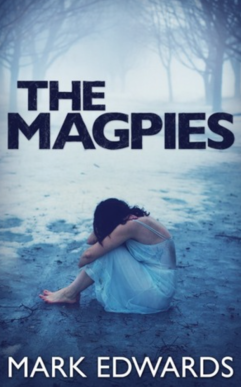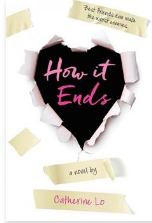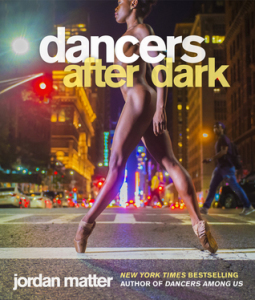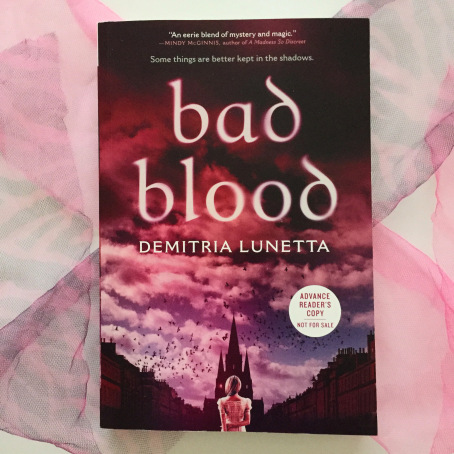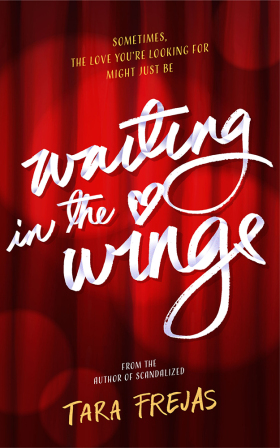Happy Monday, Reader Friends! Today, Deborah Raney has stopped by to talk about her novel, Home at Last. It sounds like it’s going to be an awesome read. Let’s get started!
About the Book
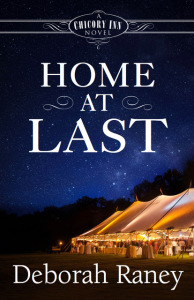 Link Whitman has settled into the role of bachelor without ever intending to. Now he’s stuck in a dead-end job and, as the next Whitman wedding fast approaches, he is the last one standing. The pressure from his sisters’ efforts to play matchmaker is getting hard to bear as Link pulls extra shifts at work, and helps his parents at the Chicory Inn.
Link Whitman has settled into the role of bachelor without ever intending to. Now he’s stuck in a dead-end job and, as the next Whitman wedding fast approaches, he is the last one standing. The pressure from his sisters’ efforts to play matchmaker is getting hard to bear as Link pulls extra shifts at work, and helps his parents at the Chicory Inn.
All her life, Shayla Michaels has felt as if she straddled two worlds. Her mother’s white family labeled her African American father with names Shayla didn’t repeat in polite––well, in any company. Her father’s family disapproved as well, though they eventually embraced Shayla as their own. After the death of her mother, and her brother Jerry’s incarceration, life has left Shayla’s father bitter, her niece, Portia, an orphan, and Shayla responsible for them all. She knows God loves them all, but why couldn’t people accept each other for what was on the inside? For their hearts?
Everything changes one icy morning when a child runs into the street and Link nearly hits her with his pickup. Soon he is falling in love with the little girl’s aunt, Shayla, the beautiful woman who runs Coffee’s On, the bakery in Langhorne. Can Shayla and Link overcome society’s view of their differences and find true love? Is there hope of changing the sometimes-ugly world around them into something better for them all?
Purchase at: Amazon, Abingdon, CBD, Goodreads
About the Author
 DEBORAH RANEY’s first novel, A Vow to Cherish, inspired the World Wide Pictures film of the same title and launched Deb’s writing career. Twenty years and thirty books later, she’s still writing. She and her husband traded small-town life in Kansas––the setting of many of Deb’s novels––for life in the city of Wichita. They love traveling to visit four grown children and seven grandchildren who all live much too far away.
DEBORAH RANEY’s first novel, A Vow to Cherish, inspired the World Wide Pictures film of the same title and launched Deb’s writing career. Twenty years and thirty books later, she’s still writing. She and her husband traded small-town life in Kansas––the setting of many of Deb’s novels––for life in the city of Wichita. They love traveling to visit four grown children and seven grandchildren who all live much too far away.
Connect and follow at: Website, Facebook, Twitter, Blog, Amazon, Instagram, Pinterest, Goodreads
Interview
Toni: Thank you so much for joining us to talk about Home at Last. I can’t tell you how excited I was to see your novel will be dealing with the subject of interracial relationships. What made you decide to write this book?
Deborah: I grew up on a farm in Kansas, attended country school, then married and raised our kids in a small town where racial issues were almost non-existent, partly because there were few people of any color except white. Still, no one I knew was racist, or if they were, they pretended not to be. We studied the civil rights movement and celebrated Martin Luther King Jr. in school, but I thought the things he fought about were ancient history. Perhaps I was too sheltered from the way things were in other parts of the country, even though my parents taught me to love unconditionally.
I first witnessed subtle racism when we traveled in the South, nearly always from older people, and I remember thinking “this will take care of itself in another generation because young people aren’t so prejudiced.” But then I learned of a young white girl who was dating a wonderful black Christian man, and her parents were devastated. We’d met the young man and loved him. We were shocked that such blatant racism still existed in this enlightened 21st Century. That incident opened my eyes to the fact that until Jesus returns, there will always be sinners, and sadly racism will likely still be one of the sins we must deal with. Unfortunately, after many years of making great strides, the problem seems to have grown worse in the last decade. The divide along racial lines in this country breaks my heart. As do the divides along religious lines, economic lines, and any other lines that cause one group of people to believe they are superior to another group.
Four years ago, my husband and I moved to Wichita, Kansas, into a very wonderfully diverse neighborhood. We have invited each of our neighbors over for dinner and have gotten to know some of the most wonderful people—African American, Chinese, Filipino, Vietnamese, Lutheran, Catholic, non-believers—people who don’t look like we do, or have the same background we do. But sitting around a table, sharing a meal, we suddenly begin to find the ways we can see eye-to-eye—and to celebrate the ways we are different. I truly believe that so much could be solved if people would just sit down to a meal with those they think they have nothing in common with. How often they would discover that exactly the opposite is true! Fear of one another would be replaced by respect for one another. Stereotypes would fall by the wayside. And God’s love would break down any remaining barriers. I want my writing to be part of that wave of His love.
Toni: That is wonderful! I’m glad you’re working towards harmony. Others will definitely see Christ in your actions. Which brings me to your character, Shayla Michaels , who is biracial. Given your own ethnic background, did you find it difficult to write Shayla’s?
Deborah: Just as it is when I write ANY character who is different from me—whether in gender, age, occupation, economic status, religion, or race—it is a challenge to assume the point of view of someone different from yourself, and I know that I’d better do my homework. When I write from a male character’s point of view, I often holler down to my husband, “Is this something you would say? How would you feel if…?” Or if I’m writing a character who’s closer in age to my kids than to me, I’ll shoot them an e-mail and ask, “How would you say this? What word would you use?” Of course, knowing a wide variety of people, having watched a ton of movies and read a ton of books, I’ve learned a lot about people who are different from me. But I admit I’m surprised by how often I guess the answer wrong to those questions!
Writing a biracial character was no different. I’ve never experienced being biracial, and I’ve never been in an interracial relationship. So I did what I do with every novel: I found real people who HAVE experienced those things, and asked them to read my manuscript and to be very honest about whether I was writing realistically or if I’d gone off track. I asked them to tell me if they found any of my characters’ words offensive. (Of course, I had some villains whose job in my novel was to BE offensive. I’m surprised how often readers “blame” me, the author, as if I agreed with the bad things my villains think!)
But even if I interview 100 people, and read dozens of books from the perspective of my character, I will never write “truth” for every person who reads my book. One interracial couple I interviewed experienced almost no opposition to their marriage; another couple, nearly disowned by their parents. And if we are ever going to get past the racial divide in this country, we must acknowledge BOTH truths. We must rejoice that there has been some progress, but we must also mourn that we’re not there yet and there is still work to do.
My writing critique partner, Tamera Alexander, and I laugh because I was raised on a farm in the Midwest, and she’s a city girl from Atlanta. We are closest of friends, but WOW do we ever see things differently! And those differences are a wonderful thing! They make us unique and interesting to each other, and they help us realize that not everyone thinks and feels exactly like we do! But those very differences—whether race, economics, religion, life experience, etc.—can be what make us fascinating and inspiring and educational to each other, IF we are willing to view our differences that way.
Toni: I’m so thankful for those who are genuinely interested in having an open discussion about differences. Kind of fits one of the themes of Home at Last: racial reconciliation. As a Christian, why do you feel this subject is so important?
Deborah: God sees and loves His children all equally. And He has called us to love one another the way He loves us. Right now, we’re not doing a very good job of it in this country [U.S.] and in this world. And that breaks my heart. If my writing can be one drop of water in a flood of love that brings healing, then I will feel my work was worthwhile.
Toni: Amen! How did you make Shayla believable without falling into racial stereotypes?
Deborah: I think there are several things that helped me flesh out Shayla’s character. First, I tried to look at her character and her personality apart from how she appears physically. I tried to get to know HER. The essence of her. Every normal human being has the same wealth of emotions, the same balance of positive and negative qualities. I tried to make Shayla unique, even though she was very much a product of her parents’ rocky interracial marriage. Another thing I did was to purposefully make Shayla’s brother fall into the stereotype, which angers her, because she’s worked so hard to overcome the stereotypes. Sometimes, pretending stereotypes don’t exist only draws attention to them, so I tried to face that head-on, yet in a way that shone a light on the wrongfulness of perpetuating stereotypes and judging people by them.
Toni: Love that! I imagine there are many great scenes from that alone. Is there a Bible verse that speaks to Shayla and Link’s story?
Deborah: The whole Bible! Because the entire story of God’s Word, from Genesis to Revelation is a story of reconciliation! Ephesians 2:14-22 speaks of the “ethnic” difference between Jews and Gentiles, and sets the example for how we should look at breaking down the walls that divide any diverse groups:
“For he himself [Jesus] is our peace, who has made the two groups one and has destroyed the barrier, the dividing wall of hostility, by setting aside in his flesh the law with its commands and regulations. His purpose was to create in himself one new humanity out of the two, thus making peace, and in one body to reconcile both of them to God through the cross, by which he put to death their hostility. He came and preached peace to you who were far away and peace to those who were near. For through him we both have access to the Father by one Spirit.
Consequently, you are no longer foreigners and strangers, but fellow citizens with God’s people and also members of his household, built on the foundation of the apostles and prophets, with Christ Jesus himself as the chief cornerstone. In him the whole building is joined together and rises to become a holy temple in the Lord. And in him you too are being built together to become a dwelling in which God lives by his Spirit.”
Toni: Love God’s Word. Thanks for sharing that.
How about some easier questions?
Do you listen to music while writing or require silence?
Deborah: I listen to movie soundtracks while I write, trying to match the music to the mood of the scene I’m writing. Soundtracks are intended to be background for a scene, so they are perfect for writing. I always wish my readers could listen to the same playlist while they read my novels.
Toni: Have you checked out Spotify? You can make a playlist and share it with your readers.
Favorite season?
Deborah: Spring or Fall, usually whichever we’re currently in. Living in Kansas we have a wonderful range of seasons and I do love the ever changing seasons and weather. But the relief Spring and Fall each offer from the more brutal seasons of cold and heat make them my favorite.
Toni: I hear that! Favorite candy?
Deborah: I love Heath Bars and other toffee-based candy, Coffee Nips, and jawbreakers. Sadly, I’ve never met a piece of candy I didn’t like.
Toni: I love toffee covered peanuts. Last but not least, how can readers support you on your writing journey?
Deborah: I don’t think readers realize the power they have to encourage and inspire writers. We appreciate our readers so much! When you write to an author telling them you enjoyed their book, or when you write a glowing review, that is like fuel to our writers’ engines. Probably most tangibly important is that you buy our books. Authors make ZERO money on free books, books borrowed from the library, or books bought used. Many readers don’t realize that authors spend out-of-pocket money on books and shipping when they do giveaways. But if a book doesn’t make money, publishers won’t sign that author for another contract. So, a huge THANK YOU to the readers who have purchased their favorite authors’ books.
Thanks so much for hosting me, Toni! I love the work you are doing toward reconciliation and to promote Christian fiction!
Toni: Thanks so much for being here! Readers, do you have any questions for Deborah?
Interview conducted by Toni Shiloh.
Advertisements Share this: